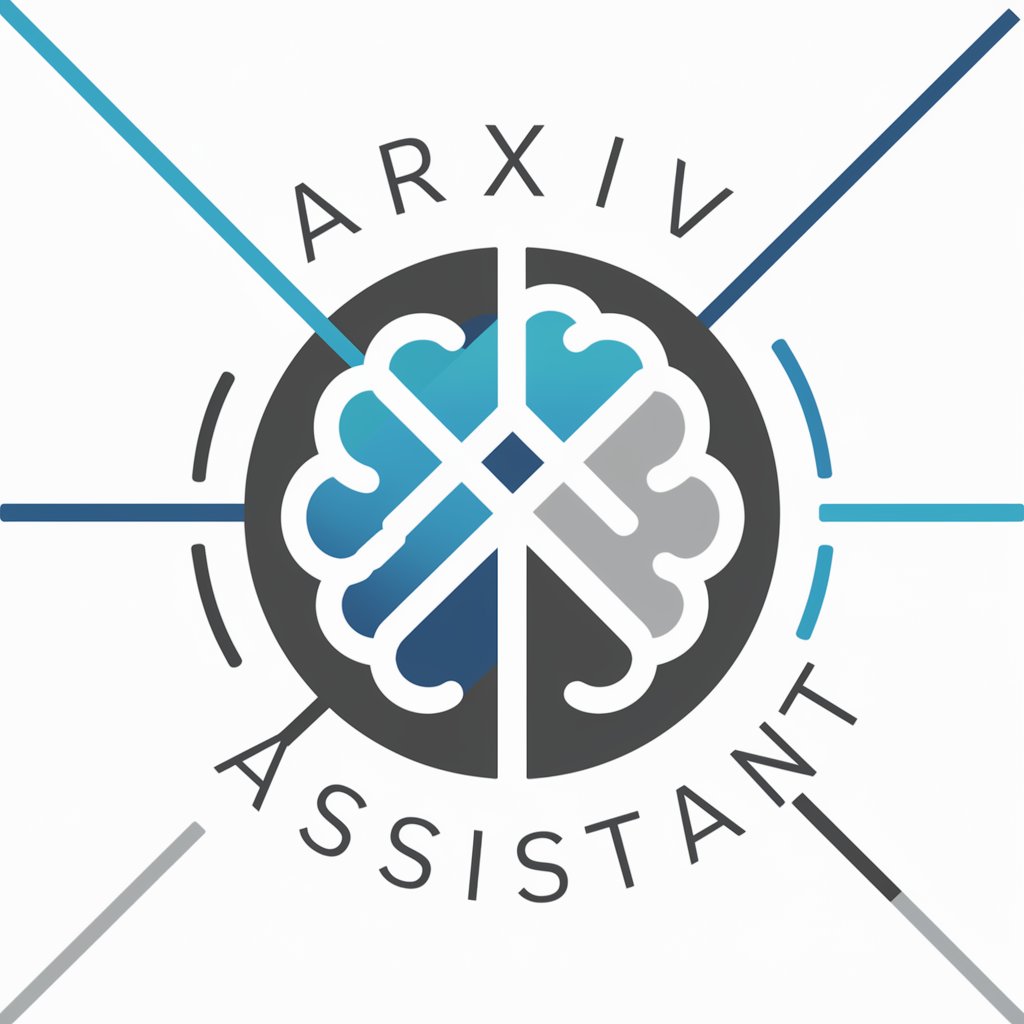18 GPTs for Academic Inquiry Powered by AI for Free of 2025
AI GPTs for Academic Inquiry are advanced AI tools designed to assist with research, learning, and exploration within academic fields. Leveraging the power of Generative Pre-trained Transformers, these tools provide tailored solutions for handling complex tasks and topics related to scholarly research. They support a wide range of academic functions, from data analysis and literature review to hypothesis testing and learning enhancement, thereby playing a crucial role in enhancing research quality and efficiency.
Top 10 GPTs for Academic Inquiry are: 超级选题助手,ar X iv Assistant,Academic Explorer,Cite Scholar,Student Buddy,Qdai Rule Reference Agent(仮),Paper Scout,Benedict XVI,学术助手,江苏财会职业学院
超级选题助手
Crafting Your Research Path with AI

ar X iv Assistant
Simplifying academic discovery with AI

Academic Explorer
Empowering your academic research with AI

Cite Scholar
Empowering Research with AI-Driven Citations

Student Buddy
Empowering Your Academic Journey with AI

Qdai Rule Reference Agent(仮)
Navigating Academic Rules with AI Precision

Paper Scout
Elevating research with AI precision.

Benedict XVI
Explore Theological Insights with AI

学术助手
Empowering Your Academic Success with AI

江苏财会职业学院
Empowering your academic journey with AI

Mr. Crowley
Unveil the Mysteries with AI

Star Trek Q
Unlocking the Mysteries of the Cosmos

Scholarly Guide
Empowering Learning with AI Insight

茶里茶气
Empowering nuanced conversations with AI.

Philosophical Lighthouse
Illuminate Your Thoughts with AI

Lopes Scholar
Empowering Literature with AI

Euro Migration Study Assistant
Navigating EU Migration with AI-Powered Precision

探究テーマ設定ファシリα版
Empowering exploration with AI-driven insights

Essential Attributes of AI GPTs in Academia
AI GPTs for Academic Inquiry stand out for their adaptability, capable of performing both simple and intricate tasks tailored to academic research. Key features include advanced language understanding for literature reviews, technical support for data analysis, web searching capabilities for sourcing relevant information, image creation for visual data interpretation, and customizable functions that adapt to specific research needs. These capabilities, combined with continuous learning from new data, make them invaluable tools for academic purposes.
Who Benefits from Academic AI GPTs
The primary beneficiaries of AI GPTs for Academic Inquiry include students, researchers, and educators across various academic disciplines. These tools are designed to be user-friendly for novices without programming experience, while also offering extensive customization options for developers and professionals in academia. This dual approach ensures that GPTs can be effectively utilized for a wide range of academic activities, from basic learning to advanced research.
Try Our other AI GPTs tools for Free
Occult Studies
Explore the intersection of technology and the esoteric with AI GPTs for Occult Studies. These tools offer insights, analysis, and personalized experiences in the realm of the occult, accessible to enthusiasts and professionals alike.
Translation Aid
Discover how AI GPTs for Translation Aid revolutionize language barriers with advanced, context-aware translation tools, designed for both novices and professionals.
Conversational Therapy
Discover how AI GPTs for Conversational Therapy leverage cutting-edge technology to offer empathetic, tailored support for mental wellness.
Strategy Guidance
Discover how AI GPTs for Strategy Guidance revolutionize strategic planning with predictive insights, data analysis, and tailored solutions for every sector.
Metaverse Navigation
Explore the world of Metaverse Navigation with AI GPTs - advanced tools designed for effortless virtual interaction and optimized experiences. Tailored for both novices and professionals, these AI solutions redefine your virtual journey.
Rule Enforcement
Discover how AI GPTs for Rule Enforcement automate compliance, offering tailored, efficient solutions for policy and rule adherence across various sectors.
Further Perspectives on AI GPTs in Academia
AI GPTs offer customizable solutions across different sectors of academia, streamlining research, facilitating learning, and supporting data-driven insights. Their user-friendly interfaces and potential for integration with existing systems underscore their value in enhancing academic productivity and fostering a deeper understanding of complex subjects.
Frequently Asked Questions
What are AI GPTs for Academic Inquiry?
AI GPTs for Academic Inquiry are specialized AI tools designed to assist with and enhance academic research and learning through advanced data analysis, information sourcing, and content generation.
How can these tools benefit academic research?
They offer capabilities like comprehensive data analysis, language understanding for literature review, and the ability to source and compile information efficiently, thereby enhancing research quality and productivity.
Are AI GPTs accessible to those without coding skills?
Yes, these tools are designed with user-friendly interfaces that allow individuals without coding expertise to leverage their capabilities for academic research.
Can developers customize these AI GPTs for specific research needs?
Absolutely. Developers and researchers with programming skills can further customize the tools to suit specific project requirements, making them even more versatile.
What makes AI GPTs different from traditional research methods?
AI GPTs automate and enhance various research processes, offer insights based on large datasets that might be unmanageable manually, and improve the efficiency and scope of academic inquiry.
Can AI GPTs assist in hypothesis testing?
Yes, by analyzing extensive datasets and generating predictive models, AI GPTs can help in formulating and testing hypotheses in various academic fields.
How do AI GPTs integrate with existing academic workflows?
These tools are designed to be flexible and can be easily integrated with existing research and learning management systems, complementing traditional methods with advanced AI capabilities.
Are there limitations to what AI GPTs can do in academic research?
While AI GPTs significantly enhance research capabilities, they require clear guidance and input from users and may not replace the nuanced understanding and critical thinking skills of human researchers.